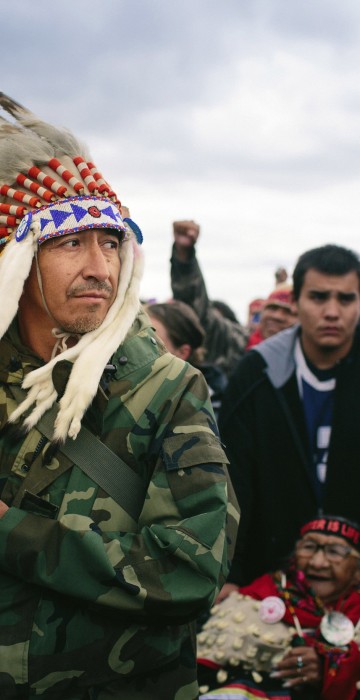
Photo
Fight for Standing Rock: Native Americans Defend Water, Land
Dozens of Native American tribes have gathered to fight a $3.8 billion pipeline which they say endangers their livelihood and holy lands.
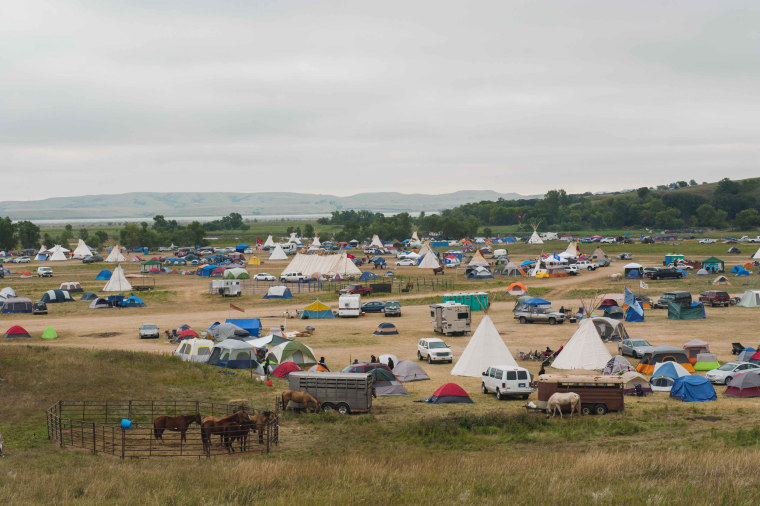
The Seven Council camp is one of three encampments that have grown on the banks of the Cannon Ball River over the last month with the purpose of stopping construction of the Energy Transfer Partners Dakota Access oil pipeline near the Standing Rock Sioux reservation in Cannon Ball, North Dakota, Sept. 6.
Amid the rolling hills and wide prairies of North Dakota Native Americans have erected a makeshift camp united by a common cause. Members of some 200 tribes have gathered here, many raising tribal flags that flap in the unforgiving wind. Some have been here since April, their numbers fluctuating between hundreds and thousands, in an unprecedented show of joint resistance to the nearly 1,200 mile-long pipeline.
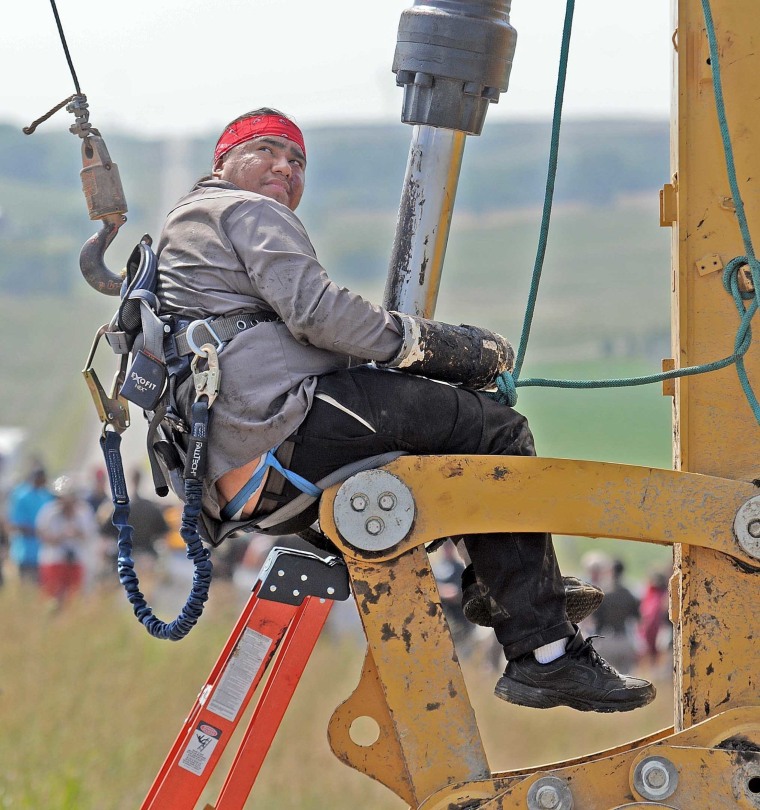
A person sits in protest at the site of construction of the Dakota Access Pipeline in central North Dakota, Aug. 31. Authorities say that they have cut free the man who bound himself to construction equipment as part of a protest at a Dakota Access oil pipeline about 20 miles west of a main protest site in North Dakota.
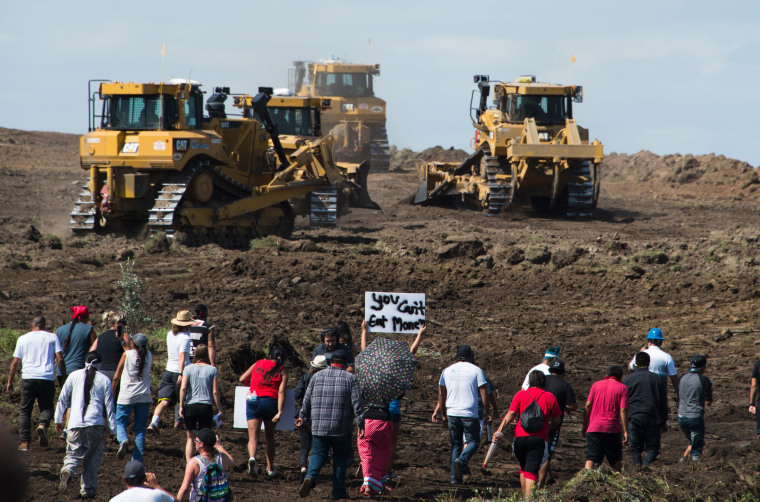



Native Americans march to the site of a sacred burial ground that was disturbed by bulldozers building the Dakota Access Pipeline, near the encampment where hundreds of people have gathered to join the Standing Rock Sioux Tribe's protest of the oil pipeline slated to cross the nearby Missouri River, Sept. 4.
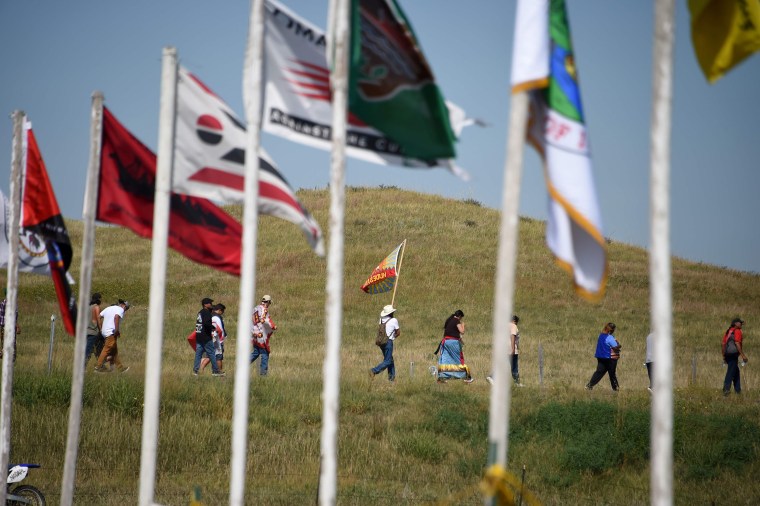
Protestors march to a construction site for the Dakota Access Pipeline to express their opposition to the pipeline, Sept. 3. The Indian reservation in North Dakota is the site of the largest gathering of Native Americans in more than 100 years. Indigenous people from across the U.S. are living in camps on the Standing Rock reservation.
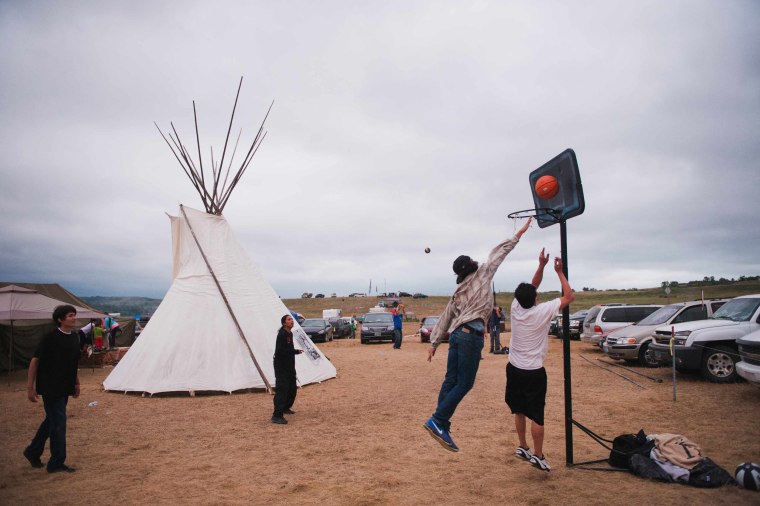
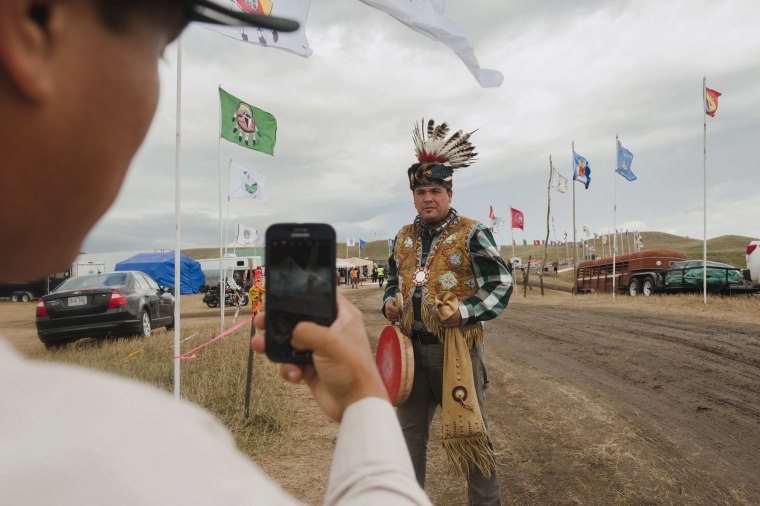




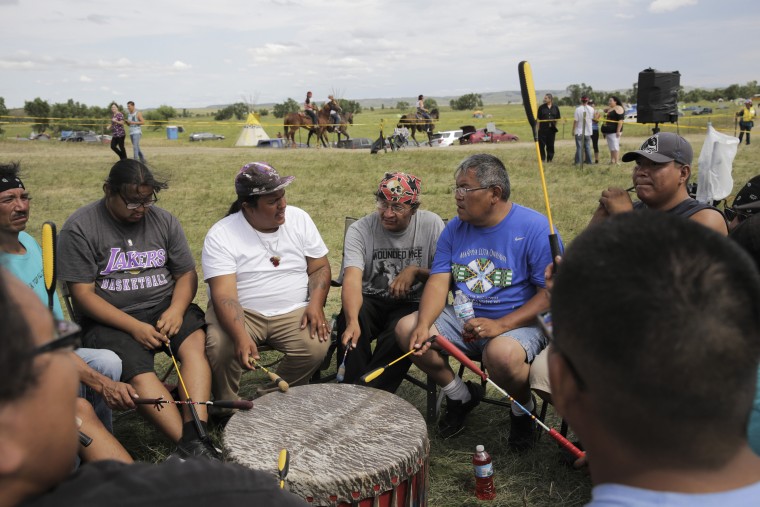
The Creekside Singers from Pine Ridge Reservation drum while camped out with other protesters in Cannon Ball, North Dakota, Aug. 18. The Standing Rock Sioux tribe, whose reservation lies just south of the pipeline's path, has sued to block it.

Catcher Cuts The Road, an Army veteran, leads a protest march to a sacred burial ground at the Standing Rock Indian Reservation in North Dakota, Sept. 9. A federal judge on Friday denied the Standing Rock Sioux Tribe's efforts to halt the construction of a pipeline skirting the northern edge of the reservation on Friday; on the same day, the government ordered a the pipeline company to pause its work.